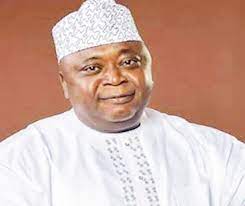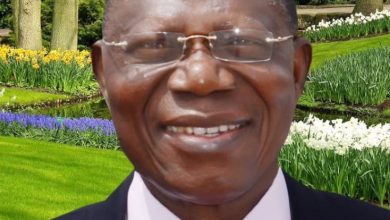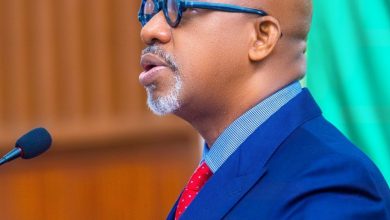
For the records: Sections 134(1b) and 299 of the constitution of the federal republic of Nigeria
By A. M. Kotoye, SAN, FCTI
AN OVERVIEW : 1.00. INTRODUCTORY.
In the year 1979, Nigeria adopted the American Presidential System of government and the twin brother – a Written Constitution. One of the innovations of the 1979 Constitution is S. 126(2)(b), which says:-
“126(2). A candidate for an election to the office of President shall be deemed to have been duly elected where, there being only 2 candidates for the election-
(b) He has not less than one – quarter of the votes cast at the election in each of at least two – thirds of all the States in the Federation.”
The above is ipsisima verba, with the provisions of S. 34(A)(i) of the operative Electoral Act and which was the pith of the decision in the famous case of Awolowo vs. Shagari & 2 Ors (1979)NSCC Vol. 12, Pg. 87.
1.02. The 1989 Constitution followed a similar pattern, when at S.132 (1)(b) it provides thus:-
“132(1). A candidate for an election to the office of President shall be deemed to have been duly elected where, there being only 2 candidates for the election-
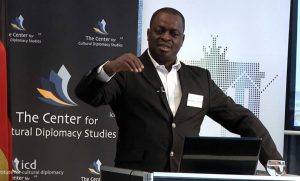
(b) He has not less than one – third of the votes cast at the election in each of at least two – thirds of all the States in the Federation.”
However, to curb the mischief occasioned by the earlier S. 126(b) of the 1979 version and the outcry arising from the Supreme Court’s decision in the Awolowo vs. Shagari (Supra) case, the draftsman of the 1989 Constitution, introduced S. 133 – titled “Computations of fractions in certain cases and which was not in the 1979 Constitution. S. 133 says:-
“For the purposes of sections 131(b), 132(1)(b) and (2)(b) of this Constitution, where the computation of two – thirds of all the States of the Federation or one – third of the votes cast in a State, as the case may be, results in a fraction, the figure obtained shall be rounded up to the next higher whole number.”
1.03. Please note that, I have decided to highlight the above and deliberately imported S. 133 of the 1989 Constitution into the discus, to establish and argue the point that if the framers of the 1999 Constitution, had intended to treat Abuja as a “State of the Federation”, in S. 134(1)(b) and (2)(b) of the 1999 Constitution, they would have expressly say so, just as it was expressly stated in S. 299 of the same question. S. 299 of the 1999 Constitution says:-
“The provisions of this Constitution shall apply to the Federal Capital Territory, Abuja as if it were one of the States of the Federation: and accordingly –
(a)All the legislative powers, the executive powers and the judicial powers vested in the House of Assembly, the Governor of a Sate and in the courts of a State shall, respectively, vest in the National Assembly, the President of the Federation and in the courts which by virtue of the foregoing provisions are courts established for the Federal Capital Territory, Abuja;

(b)All the powers referred to in paragraph (a) of this section shall be exercised in accordance with the provisions of this Constitution; and
(c)The provisions of this Constitution pertaining to the matters aforesaid shall be read with such modifications and adaptations as may be reasonably necessary to bring them into conformity with the provisions of this section”(underline mine).
1.04. Please note further that, I have decided to highlight the clause “as if it were one of the States of the Federation”, to demonstrate the fact that, if the framers of the current S. 134(2) (b), had intended that, the clause “as if it were one of the States of the Federation”, be part of that section, they would have expressly included it in S. 134(1)(b) and (2)(b) Supra. This is because of the doctrine of Legislative memory, which presuppose that the legislature keep a record of its previous legislation and are often guided by its memory, in all subsequent legislation on the same issue. It is also important to point out that, none of the earlier Constitutions, to wit; 1979 and 1989 contain the clause as if it were one of the States of the Federation, in all their relevant sections relating to Abuja, even though they both had provisions similar to S. 134(1)(b) and (2)(b) supra. It may therefore be presumed and/or deemed that, the intentions of the drafters of S. 299 supra, was to make it solely applicable to the setting up of the Administrative organs, ie the other arms of government in Abuja, save the Legislature and this could be seen in the content of sub – sections a – c as quoted above. This I shall further elaborate anon.
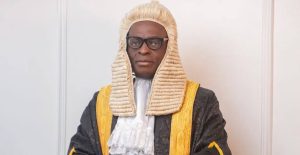
2.00. CURRENT POSITION.
Ss. 133(1)(b) and 134(2)(b) of the 1999 Constitution, is a repetition of the provisions of the 1979 Constitution, save the addition of “and in the Federal Capital Territory Abuja”. For the purpose of this discourse, I shall limit myself to the provisions of S. 134(2) (b), what I believe, in my opinion is the intendment of the drafters of that section, its interpretation and application to the current issue. S. 134(2) (b) of the 1999 Constitution says:-
“A candidate for an election to the office of President shall be deemed to have been duly elected where, there being more than two candidates for the election-
(b) He has not less than one – quarter of the votes cast at the election in each of at least two – thirds of all the States in the Federation and the Federal Capital Territory, Abuja.” (underline mine).
2.01. This section, has been a source of several debates, especially in view of the recently concluded Presidential and National Assembly elections and the fact that only one of the three leading candidates, appear to have garnered the required “one – quarter of the votes cast at the election”, the supposed 25%, in Abuja. Within this context of the raging debate and in my humble view, there are two questions arising from both sides of the debate and they are to wit:-
a. What is the correct interpretation to be given to the word “and”, as contained in S. 134(2) (b) supra?
b. Will S. 299 of the Constitution be applicable in this instance and thereby elevating the status of Abuja, to be equal to that of a State or make it the 37th State, as contended by some?

2.02. To answer the first question, I will consider the word “and”, as used in S. 134(2)(b) supra, vis – a – vis the entire section and apply same, using the expressio unius est exclusio alterius or inclusio unius est exclusio alterus enumerateo unius exclusion alterius maxim, examine the definition of the word “and”, apply same to the entire section and use the literal rule of interpretation of statutes.
2.03. The Chambers Thesaurus, edited by Martin H. Manser, at page 40 defined the word “and” as follows:-
“Also, too, together (with), besides, as well (as), with, along with, in addition (to), plus, including, furthermore, moreover, by the way, then..”(underline mine).
The Oxford Advance Learner’s Dictionary at page 50, defined the same word thus:- “(used to connect words or parts of sentence); also, in addition to: ….a table, two chairs and a desk……..used between repeated words to show that there are important differences between things or people of the same kind………used when you say that two situations exist together,…….”(underline mine
The 5th edition of the Black’s Law Dictionary, at page 79, puts it more clearly and poignantly, when it defined it thus:-
“A conjunction connecting words or phrases expressing the idea that the latter is to be added to or taken along with the first. Added to; together with; joined with; as well as; including……..It expresses a general relation or connection, a participation or accompaniment in sequence, having no inherent meaning standing alone but deriving force from what comes before and after. In its conjunctive sense the word is used to conjoin words, clauses, or connection, and signifying that something is to follow in addition to that which proceeds and its use implies that the connected elements must be gramatically co-ordinate, as where the elements preceding and succeeding the use of the words refer to the same subject matter…..”(underline mine)
2.05. It is important to further note the use of the words “also, besides, as well (as), along with, in addition (to), , furthermore, moreover, by the way, used when you say that two situations exist together..” and the phrase ” and signifying that something is to follow in addition to that which proceeds and its use implies that the connected elements must be gramatically co-ordinate”, as used in the above definitions.
Therefore, to interpret S. 134(2) (b) supra, we have to apply the literal rule of interpretation because the wording of that section is plain, clear and unambiguous. It is therefore trite that, in situation as this, it is the literal rule that will be applicable. If we therefore remove the word “and”, in S. 134(2)(b), it may read like this:- “ he has not less than one – quarter of the votes cast at the election in each of at least two – thirds of all the States in the Federation “besides” the Federal Capital Territory, Abuja.” Or “ he has not less than one – quarter of the votes cast at the election in each of at least two – thirds of all the States in the Federation “as well as” the Federal Capital Territory, Abuja.” Or “he has not less than one – quarter of the votes cast at the election in each of at least two – thirds of all the States in the Federation “along with” the Federal Capital Territory, Abuja”. Or “he has not less than one – quarter of the votes cast at the election in each of at least two – thirds of all the States in the Federation “in addition to” the Federal Capital Territory, Abuja”. Or “he has not less than one – quarter of the votes cast at the election in each of at least two – thirds of all the States in the Federation “plus” the Federal Capital Territory, Abuja.”

2.06. In view of the above, I will therefore answer the first question posed at paragraph 2.01(a) by saying that, it is compulsory that, before any candidate can satisfy the provisions of S. 134(2)(b), he/she must score “not less than one – quarter of the votes cast at the election in each of at least two – thirds of all the States in the Federation “besides/in addition to/along with/as well as/plus” the Federal Capital Territory, Abuja.” In this connection, the Federal Capital Territory, Abuja is not and cannot be treated as the 37th States as wrongly contended by some and neither will the votes nor the voters in Abuja, be regarded as special or given an elevated status. It is the Constitution that made it mandatory that, the winner of the presidential election, must also secure twenty five per cent in Abuja and this will be in addition to/apart from, having the same percentage in at least, other twenty four States of the Federation.
2.07. The above position is further supported by the legal maxim expressio unius est exclusio alterius or inclusio unius est exclusio alterus enumeratio unius exclusion alterius. This principle of law simply mean; the expression of one thing is the exclusion of another. In Ehuwa vs. Ondo State Independent Electoral Commission & 3 Ors. (2006)11 – 12 S.C Pg. 102 @ 110 para 5, the Supreme Court Coram Late Ogbuagu Jsc, while interpreting that maxim held thus:-
“In other words, the express mention of one thing in a statutory provision, automatically, excludes any other which would have applied by implication with regard to the same issue”.
Applying the above maxim, to the interpretation of S.134 (2)(b), it means that the express mention of “all the States in the Federation”, in the first limb of that section is the exclusion of Abuja, “with regard to the same issue”. Put in another form, the express mention of “Abuja”, in the latter part of S. 134(2)(b), is the express exclusion of the phrase; “”all the States in the Federation”, as it appeared in the earlier part of that section.
2.08. The above position/maxim is further justified by the content of the 1st Schedule to the Constitution, where all the thirty six States are listed, with the Capital City and there is no mention of Abuja. And this will therefore lead to the second question, to wit: Will S. 299 of the Constitution be applicable in this instance and thereby elevating the status of Abuja, to be equal to that of a State or make it the 37th State, as contended by some?
I will answer that question in the negative. As said above, Abuja is not one of the States mentioned in the 1st Schedule, which is made pursuant to S. 3(1 – 3) of the Constitution. Secondly, the same S. 3(4 & 5) and Part 2 of the same 1st schedule specifically established Abuja, as a distinct administrative/geographical entity/space and defined it as contained at S. 297(1). Thirdly, S. 3(6) of the same Constitution, did not list the six Abuja Area Councils, among the 768 Local Government Areas, listed in the second column of Part 1 of the 1st schedule. Certainly, Abuja, was not intended by the writers of the present constitution, to be the 37th State, it is not and can never be.

2.09. In addition, if the writers of the Constitution had intended that Abuja, should be regarded as one of the States of the Federation or the 37th State, in the computation of the 25% requirement, it would have been so listed in the 1st schedule and S. 134(2b), would have been written thus:-
“He has not less than one – quarter of the votes cast at the election in each of at least two – thirds of all the States in the Federation and the Federal Capital Territory, Abuja, as if it were one of the States of the Federation.”
It is important to note that, whilst S. 299 (a & b) of the Constitution is a general provision, S. 134(2)(b) is a specific provision. S. 299 supra, deals with general provisions relating to the application of the Constitution, to the administrative structure of the two arms of government, to wit; executive and judiciary, created in S. 299(b) and the extent of their powers. It is strictly limited to vesting both the executive and legislative powers, in the National Assembly and the President respectively and the judicial powers, vested in the courts established under the same Constitution. It has nothing to do with S. 134(2)(b) supra and ought not to be read into it.
3.00. On the other hand, S. 134(2)(b), is a specific provision, enacted specifically for the purpose as stated in the marginal note thereof and which is to wit: “election: two or more Presidential Candidate”. In this instance, the legal maxim “Genaralia specialibus non – derogant”, meaning “things general do not derogate from things specific”. Therefore, neither S.299 supra nor the cases of Bakari v Ogundipe (2021)5 NWLR Pt. 1768 Pg.1 and Buhari vs. INEC, often cited by the proponents of Abuja, being a 37th State and those, who have argued that it is not mandatory that, the winner of the presidential contest, does not need to score 25% in Abuja, so long he/she score 25%, in more than 24 States, are applicable.
In conclusion, I am of the humble view that, the requirement of 25% votes in Abuja, is sacrosanct and the winner of a presidential election, must in addition to scoring 25% in 24 States, also score 25% in Abuja.
A.M Kotoye is a Senior Advocate of Nigeria (SAN) He writes this piece from Lagos, Nigeria
FOOTNOTE: You want to share story with us? You want to advertise with us? You need publicity for product, or service, or event? Contact us on WhatsApp +2348073463653 or email [email protected]


